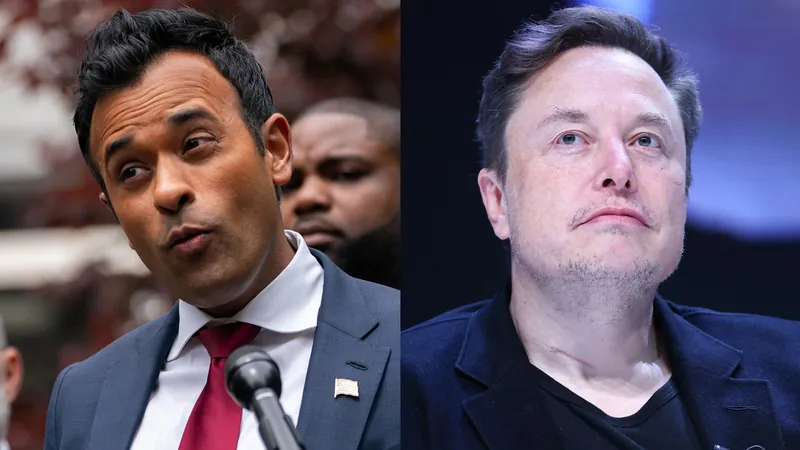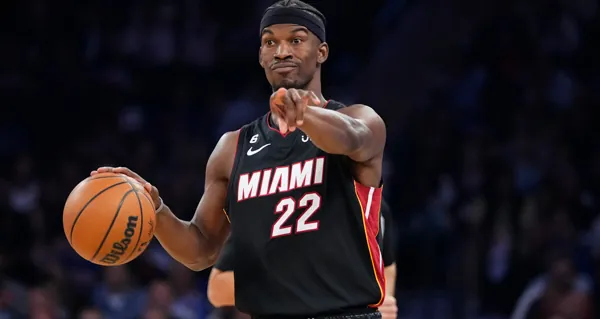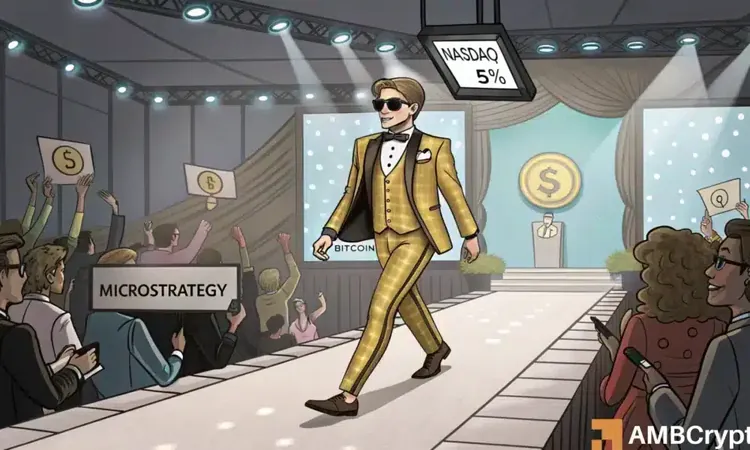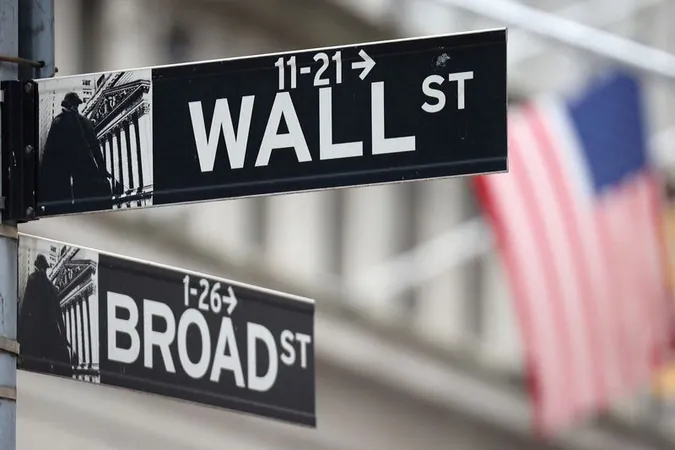
Controversy Erupts as Musk and Ramaswamy Advocate for Foreign Tech Workers Amid Tightening Immigration Policies
2024-12-26
Author: Benjamin
Introduction
In an unexpected turn of events, tech mogul Elon Musk and Republican presidential hopeful Vivek Ramaswamy have stirred the pot within the MAGA community by advocating for the recruitment of foreign workers in the tech industry. As they prepare to lead President-elect Donald Trump's newly established Department of Government Efficiency (DOGE), their comments have sparked significant backlash, especially as both figures have previously condemned undocumented immigration.
The Arguments for Foreign Workers
Musk and Ramaswamy's remarks seem to highlight the critical shortage of skilled talent in the U.S. tech space, particularly in high-demand roles that have traditionally been filled by H-1B visa holders. These visas, often seen as a double-edged sword in political discourse, allow companies to hire foreign professionals, often criticized as a means to exploit cheaper labor rather than investing in the local workforce.
Musk's Perspective
On social media platform X, Musk expressed his view that the United States is lacking “super motivated” and “super talented engineers.” He argued that just as sports teams must recruit the best athletes to win championships, tech companies must also seek out top talent globally to succeed. Musk's comments were met with sharp criticism from conservative circles that fiercely support stringent immigration laws and Trump’s hardline stance on the issue.
Criticism from MAGA Allies
Laura Loomer, an ally of Trump, voiced her outrage on social media, arguing that Musk’s recent advocacy for foreign labor contradicts core MAGA principles. She highlighted a seeming hypocrisy in Musk's position, considering his own status as an immigrant from South Africa. Loomer asserted, "You’re still not our President. The real President is from this country."
Concerns over American Talent
Supporters of the MAGA agenda rallied online as well, questioning Musk's commitment to American job creation. One user pointed out the existing pool of talent in the U.S., asking, “With over 330 million people in America, surely there must be enough among them to build your ultimate team?” Others shared personal stories of highly qualified graduates struggling to find jobs, creating a narrative that suggests a disconnect between Musk's views and the reality of the American job market.
Ramaswamy's Cultural Critique
Ramaswamy added to the controversy, claiming that the cultural values in America are contributing to a decline in work ethic compared to foreign-born engineers. He criticized a societal tendency to celebrate superficial achievements over intellectual prowess, asserting that cultures that prioritize hard work produce better engineers. His statements further ignited discussions about the need for a cultural shift in the U.S.
Historical Context and Critique
Contrary to Ramaswamy's argument, many right-leaning commentators pointed out the historical context of American ingenuity, emphasizing previous generations' abilities to propel the country’s technological advancements without relying heavily on foreign labor. Mike Cernovich, a notable figure in conservative commentary, remarked that previous generations achieved remarkable feats despite cultural challenges, calling into question the need for H-1B visas.
Musk's Own Immigration Journey
Interestingly, Musk's journey to success has itself been marked by immigration struggles. The billionaire revealed in past interviews that he initially entered the U.S. without the proper paperwork while dreaming of building his tech empire. This was during the formative years of his career with Zip2, before he ultimately became a household name with ventures like Tesla and SpaceX.
Town Hall Remarks and Humor
In a town hall event, when pressed about his own immigrant experience, Musk likened the tech recruitment landscape to sports, where securing top talent from any source is vital for victory. He even joked about border management, proposing that the efficiency of fast-food chain Chick-fil-A could serve as a model for immigration enforcement, highlighting his belief in operational efficiency.
Conclusion
As the debate rages on, the tech community watches closely, with opinions divided. As calls for policy revisitation loom, the clash between pursuing global talent and reinforcing national hiring priorities continues to unravel, raising questions about the future of tech innovation in America. Will Musk and Ramaswamy sway the MAGA base, or will they find themselves at odds with those who prioritize American labor? Stay tuned as this story develops—one thing's for sure, the intersection of technology and immigration is bound to ignite further passionate debates.









 Brasil (PT)
Brasil (PT)
 Canada (EN)
Canada (EN)
 Chile (ES)
Chile (ES)
 España (ES)
España (ES)
 France (FR)
France (FR)
 Hong Kong (EN)
Hong Kong (EN)
 Italia (IT)
Italia (IT)
 日本 (JA)
日本 (JA)
 Magyarország (HU)
Magyarország (HU)
 Norge (NO)
Norge (NO)
 Polska (PL)
Polska (PL)
 Schweiz (DE)
Schweiz (DE)
 Singapore (EN)
Singapore (EN)
 Sverige (SV)
Sverige (SV)
 Suomi (FI)
Suomi (FI)
 Türkiye (TR)
Türkiye (TR)